Ambassador Venu Rajamony, who served as press secretary to President Pranab Mukherjee during his tenure, salutes the statesman and political legend, who passed into the ages on Monday.

Pranab Mukherjee was a rare and special phenomenon in Indian politics.
Few have served the country for the length of time he has and in such a multifaceted manner. Few can boast of 43 years in Parliament.
Pranabda, as he was popularly called, used to say (L K) Advaniji was senior to him in age, but junior in parliamentary tenure.
Pranabda saw Parliament as a second home and it was here he was the happiest. By virtue of his long innings in Parliament, he was an authority on parliamentary procedures and history.
He was also a powerful orator who enjoyed participation in debates within Parliament and crossing swords with the other side, irrespective of whether he was in the Opposition or on the ruling benches.
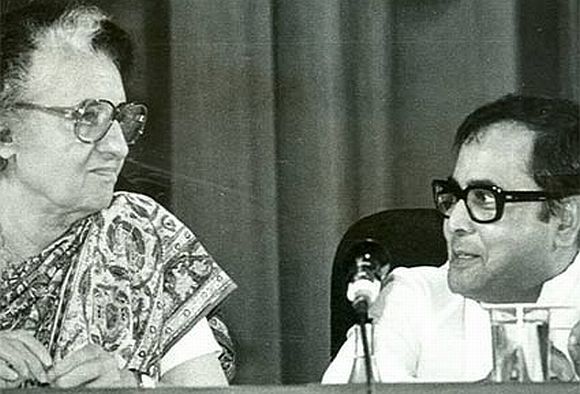
It is little known that Pranabda initially joined politics as a member of a regional party, the Bangla Congress. His first entry into the Rajya Sabha in 1969 was through this party. This was the year when Indira Gandhi decided to nationalise private sector banks.
The opposition to the bank nationalisation was fierce and even Finance Minister Morarji Desai was against it. Pranabda was a socialist in his convictions. He felt nationalisation was a right move and decided to make a strong speech defending the decision.
He was then a back bencher and the Rajya Sabha was empty during his speech. But, by lucky coincidence, (then prime minister Indira) Mrs Gandhi walked into the House unexpectedly and heard his speech. His passion and eloquence caught her attention. She enquired from others who he was.
Subsequently, West Bengal Communist Party of India leader Bhupesh Gupta introduced him to Mrs Gandhi. The Bangla Congress went on to merge with the Indian National Congress and that is how he was appointed Deputy Minister by Mrs Gandhi.
Pranabda was appointed Deputy Minister for Industrial Development in 1973 four years after entering Parliament. The very next year, he was promoted as a Minister of State and by 1975 he had independent charge of Revenue and Banking.

Indira Gandhi's return to power in 1980 saw him being made Cabinet minister for Commerce and Steel and Mines. In 1982, at 47 years, he was appointed the youngest Cabinet Minister for Finance India had seen. He then went on to hold many important portfolios including Defence, External Affairs and Deputy Chairman of the Planning Commission under four Prime Ministers -- Indira Gandhi, Rajiv Gandhi, P V Narasimha Rao and Dr Manmohan Singh.
He was responsible for initiating major reforms in a number of different areas during his stints as Minister. He earned the reputation of being an able administrator and considerate boss who would always treat his colleagues and the public with utmost respect.
Pranabda was proud of the fact that he was a member of the Congress Working Committee for 23 years. Known as a scholar politician, he authored several books on the history on the Congress party.
In his view, for a party man, being a CWC member was more important than becoming a minister. During UPA I and II, he was the main architect of consensus on difficult national issues within the coalition and outside.
He was the principal troubleshooter who would be asked to find solutions to difficult challenges that confronted the government.
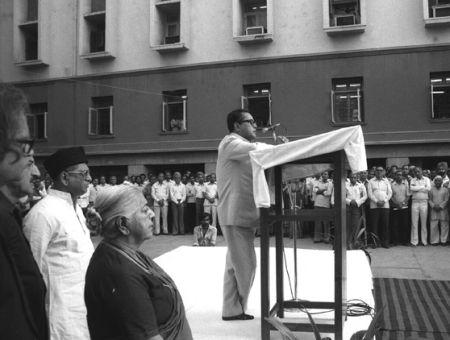
Pranabda saw many ups and down in his political life. When Mrs Gandhi's assassination took place in 1984, Pranabda was campaigning with Rajiv Gandhi in West Bengal. They travelled together on the same plane to Delhi along with many other Congress leaders.
Since he was a known authority on history, the Congress leaders took him to the back of the plane (while Rajiv was grieving in front) and asked him whether there were any precedents on who should be the successor.
Pranabda responded, pointing out that Gulzarilal Nanda succeeded Nehru briefly after Nehru's unexpected death. This response led to others in the Congress conspiring against him and spreading rumours that he was trying to project himself as a successor.
Subsequently, after winning the elections in 1984, Rajiv Gandhi dropped him from the Cabinet. Later, he was also dropped from the Congress Working Committee and expelled from the party. He built a new party called the Rashtriya Samajwadi Party, but that was a disaster. It failed miserably in the West Bengal state elections of 1987.
Though he returned to the party after few years, his full rehabilitation had to await P V Narasimha Rao's election as prime minister. He was then made Deputy Chairman of the Planning Commission and subsequently given a ministerial portfolio.
Throughout his career, Pranabda was widely admired for his experience as well as wisdom not just by members of his own political party, but also leaders of other parties. He made it a point to be open to leaders of all political parties and shades of opinion.
During the Presidency, a virtual parade of political leaders would visit him from time to time. These included leaders of Leftist parties, especially Sitaram Yechuri, who was a favourite.
At the same time, he was also open to contacts with the Rashtriya Swayamsevak Sangh. Sarsanghchalak Mohan Bhagwat used to meet him both before and during the Presidency.
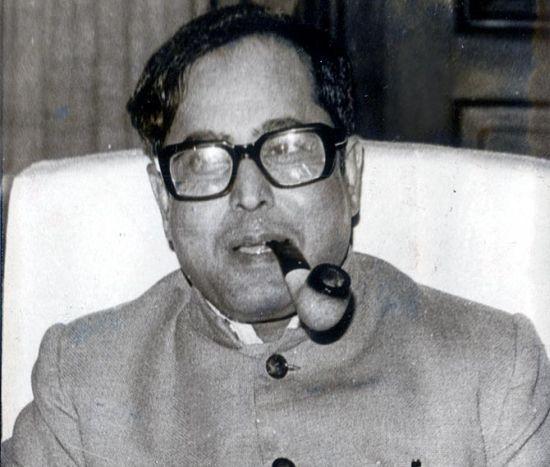
As a child, Pranabda had a nickname. He was called 'Poltu'. His sister has described him as naughty and a mischief-maker. He would spend hours swimming in village ponds and climbing trees.
Pranabda has himself described the relative poverty in which he grew up in a home with no electric power and how famine ravaged Bengal in those days.
Two well known stories of his childhood was that he used to walk through paddy fields for miles to go to school. Sometimes when encountering rain water puddles, he would take off his uniform and wade through the water wearing nothing but a small towel. After crossing the puddle, he would change back into his uniform and proceed to school.
Pranabda has also given credit to his mother for the extraordinary memory power he was gifted. As a child, when he would return home in the evening, his mother would every day make him recount in great detail all that he did, including how much money he spent. He believed this laid the foundation of his encyclopedic memory which everyone later admired.
Pranabda loved wearing the traditional Bengali dhoti. That was his preferred dress at home and during social functions. At the same time, he also knew how to wear the dhoti in the South Indian style. This was always his dress when he visited temples in Kerala. He made memorable visits to the Padmanabhaswamy temple in Thiruvananthapuram and Guruvayoor temple as President.
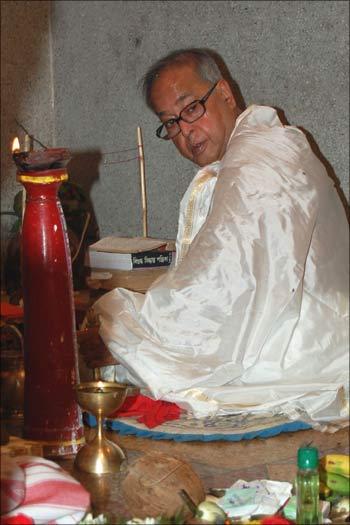
Pranabda was a devout Hindu. He would visit his village every year for Durga Puja and personally recite the Chandi Path for four days. He had good knowledge of Sanskrit. Daily pooja for about an hour every morning at home was a discipline he never broke.
He would wake up early morning and walk about five kilometres. He enjoyed reading newspapers with his tea. While his days were slow to start, his evenings would stretch until midnight and beyond.
Every day, he wrote at least one page in his diary. He felt, however, that these diaries were his private thoughts and reflections. He was very clear that they should not be published during his lifetime.
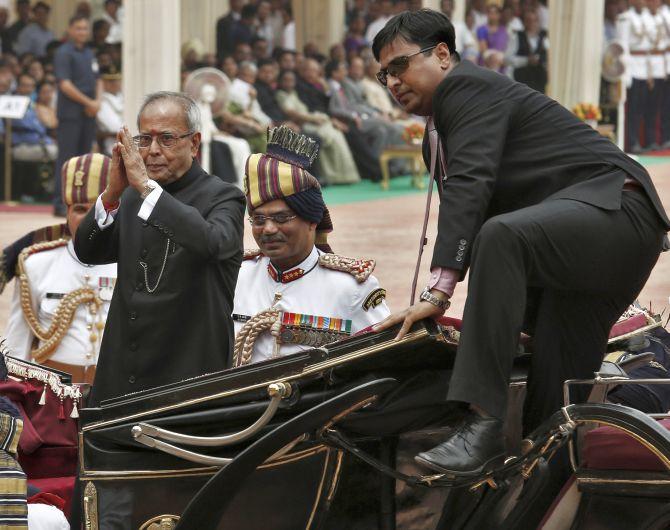
As President, Pranabda believed defending the Constitution was his prime responsibility. His most important reform was to open up the Rashtrapati Bhavan to the people and make it a democratic institution.
Under Pranab Mukherjee's stewardship, the public were provided free access into Rashtrapati Bhavan for tours and museums opened to educate the public about the history of the building and important events post Independence. A change of guard ceremony was also started every week.
Pranabda believed Rashtrapati Bhavan belonged to the nation and its people. Its legacy must be safeguarded and protected. The Presidency should be brought closer to the people.
In keeping with this belief, he sought greater participation by ordinary Indians in Rashtrapati Bhavan. To this end, programmes were created to invite eminent writers, artists, teachers, students, innovators etc. to live on the Rashtrapati Bhavan campus and have a taste of its life.
He directed that steps be taken to revive interest in the history of Rashtrapati Bhavan and spread knowledge about the same.
Pranabda earned the reputation of being an 'Education President' by virtue of the emphasis he laid on his role as 'Visitor' to leading institutions of learning in the country. He was a pioneer amongst Presidents in providing substance to this position.
He convened periodic conferences of leaders of higher education institutions such as Central Universities, IITs, NITs and IIScs along with government leaders and experts in the field of education to stimulate collective efforts for the improvement of the quality of higher education.
He used every opportunity in his public speeches to highlight the need to take India back to the days when our Universities such as Nalanda and Vikramshila were global centres of learning.
He emphasised the need to connect creative and innovative energies at the grassroots to India's formal education system and for universities to become a bridge between innovators and universities.
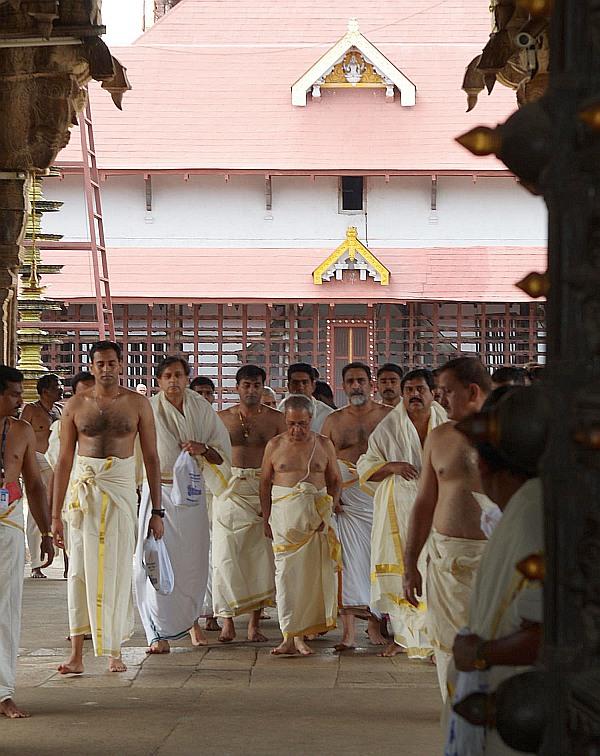
Pranabda had a special affection for Kerala. It was among the states he visited the most as President. Perhaps, his special connection with Kerala began after Rajiv Gandhi without any notice dropped him from the Cabinet. He was shocked and heartbroken.
He wanted to get away from the murky politics of Delhi immediately. He decided to seek refuge in Kerala. His son was working near Kochi at that time. Pranabda and his wife spent several weeks with his son and family.
Pranabda has told me he spent long hours walking on the beaches in introspection and contemplation before gathering strength to return to Delhi.
Some of the important events Pranabda attended in Kerala as President were his address to the Kerala legislative assembly, unveiling of a statue of former chief minister K Karunakaran in Thiruvananthapuram, inaugurating the 150th birth anniversary celebrations of Ayyan Kali, visiting the Kochi Art Bienalle and inaugurating the Muziris Heritage Project in Kodungalloor.
He had special affection for the Malayala Manorama group and attended a number of functions at their invitation. He participated in the 125th anniversary celebrations of Malayala Manorama in Kottayam and at Rashtrapati Bhavan received the first copy of the biography of former chief editor and publisher K M Mathew, Eighth Ring.
He recalled on the occasion how he knew Shri K M Mathew from the beginning of his public life. He also revealed his love for the Manorama Year Book, whose Bengali version he would eagerly await every year.
I also recall Managing Editor Phillip Mathew presenting him a CD of Sama Veda brought out by Manorama Music at Rashtrapati Bhavan. Shri Shivakaran Namboodiri, the Vedic scholar who had also come, sat with his legs crossed on the top of the chair for guests in the President's office and recited shlokas in what must have been a first such occurrence.
Shri Namboodiri was embarrassed to sit like that on a chair in front of the President, but Pranabda encouraged him along without standing on any formality.
Pranabda delivered a memorial lecture in honour of my late father K S Rajamony in Kochi in March 2017 in the presence of the governor, Chief Minister Pinarayi Vijayan, Leader of Opposition Ramesh Chennithala and former chief minister Oommen Chandy.
A special memory is also the grand Onam celebrations organised at Rashtrapati Bhavan in 2017 with support of the state government in which the governor, Chief Minister Pinarayi Vijayan, a large number of state ministers, MPs and other dignitaries participated.
Pranabda greatly enjoyed the event and went around receiving guests, interacting with them and enquiring about their welfare. When others would request him to have his food, he said, 'I am the host, I should look after all of you first.'
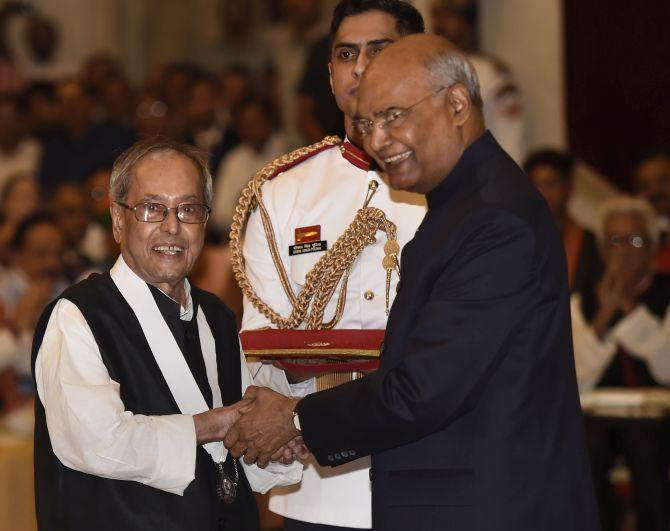
I conclude paying tributes to this great visionary and eminent but humble son of India. Pranabda always said he has received much more from the country than he has given. I disagree. It is true he became a popular and successful President. He was also awarded the Bharat Ratna.
I think he still deserved more. If he had become Prime Minister and Dr Manmohan Singh had moved to Rashtrapati Bhavan in 2012, political events post 2014 would perhaps have been very different.
Ambassador Venu Rajamony, a member of the Indian Foreign Service, is India's Ambassador to The Netherlands.
This tribute was written at the Malayala Manorama's request and kindly shared with Rediff.com by Ambassador Rajamony.







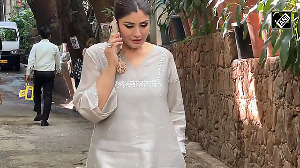


 © 2025
© 2025